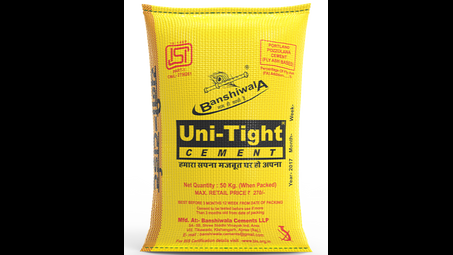Portland Pozzolana cement (PPC) is manufactured by a combination of pozzolanic materials. Pozzolana is an artificial or natural material that has silica in it in a reactive form. Along with pozzolanic materials in specific proportions, PPC also contains OPC clinker and gypsum. These pozzolanic materials include volcanic ash, calcined clay or silica fumes, and fly ash which makes around 15% to 35% of cement weight. To know more visit Banshiwala Cement- Leading Cement Company in Rajasthan India

What else can I help you with?
What is Opc and ppc grade of cement?
OPC is ordinary Portland cement and PPC is Portland pozolona cement. OPC is obtained by grinding clinker and gypsum whereas PPC is obtained by grinding clinker gypsum and high reactive silica. High reactive silica improves the quality of cement by reducing liberated lime.
Difference between opc and ppc?
Ordinary Portland Cement, also known as OPC, is a type I cement that does not only harden, but also becomes water-resistant once it cures. Pozzolanic Portland Cement, or PPC, is a type IV cement that includes a mixture of a pozzuolanic material, which can increase the strength of the concrete and reduce the amount of OPC used.
Distinguish between ordinary cement and special cement?
Ordinary Cement is used for ordianry works like building walls, and other ordinary structures.Generally OPC or PPC are ordinary cements.Special cements are used for special works of greater importance.Special Cements are white cement, colored cement, hydrophobic cement,etc.,
What is the Specific gravity of ppc?
Specific gravity of ppc is 3.15
What is the meaning of GGBS in construction field?
Cement addtive called GROUND GRANULATED BLASTFURNANCE SLAG
What type of cement should you use to put posts into the ground?
ppc cement
What is Opc and ppc grade of cement?
OPC is ordinary Portland cement and PPC is Portland pozolona cement. OPC is obtained by grinding clinker and gypsum whereas PPC is obtained by grinding clinker gypsum and high reactive silica. High reactive silica improves the quality of cement by reducing liberated lime.
How many types of cement?
there are 3type of cement1)opc (ordnary portland cement) 2)PPC (pozolan portland cement) 3) special cement
How many types cement?
there are 3type of cement1)opc (ordnary portland cement) 2)PPC (pozolan portland cement) 3) special cement
Which cement is better OPC cement or PPC cement?
Well, both types of cements have got merits of its own. OPC is a pure type cement releasing heat energy at a faster rate & the chances of shrinkage cracks are higher. PPC is a low heat cement in comparison to OPC requiring lesser degree of immediate post concrete setting curing. OPC is not suitable for hot weather conditions. PPC is suitable for adverse weather conditions. OPC cannot be used for thick & massive elements. PPC is to some extent suitable for thicker elements. Temperature controls are better conducted on PPC.
What is the grade of ppc cement?
PPC (Portland Pozzolana Cement) is typically classified as a grade 33, 43, or 53 cement, depending on its compressive strength. The numbers indicate the minimum compressive strength of the cement in megapascals (MPa) after 28 days of curing. PPC is known for its durability, resistance to chemical attacks, and lower heat of hydration, making it suitable for various construction applications.
What is the percent of flyash in ppc cement?
the percentage varies from 15% to 35%.
Difference between opc and ppc?
Ordinary Portland Cement, also known as OPC, is a type I cement that does not only harden, but also becomes water-resistant once it cures. Pozzolanic Portland Cement, or PPC, is a type IV cement that includes a mixture of a pozzuolanic material, which can increase the strength of the concrete and reduce the amount of OPC used.
Distinguish between ordinary cement and special cement?
Ordinary Cement is used for ordianry works like building walls, and other ordinary structures.Generally OPC or PPC are ordinary cements.Special cements are used for special works of greater importance.Special Cements are white cement, colored cement, hydrophobic cement,etc.,
What are the different types Cement?
There are three different types of cement,Ordinary portland cementPortland pozzolana cementSpecial cements.There are 3 types of cement,OPC (Ordinary Portland cement)PPC (Portland pozzolona cement)Special Cements.There are many types of cement. These include gray ordinary Portland cement, well cement, hydraulic cement, as well as bagged cement.There are three different types of cement,Ordinary portland cementPortland pozzolana cementSpecial cements.
What is the meaning of Cement chatti in English meaning?
"Cement chatti" translates to "Cement pot" in English. It refers to a pot or container made from cement, typically used for gardening or storing items.
What are the different types of cement?
Type-I - Ordinary portland cement used in general constructionType-II - Portland pozzolana cement , moderate heat of hydrationType- III - Rapid hardening cement used for quick setting worksType-IV - low heat cement, low heat of hydrationType-V - Sulphate resisting cement used in sewage linings,marine construction.
